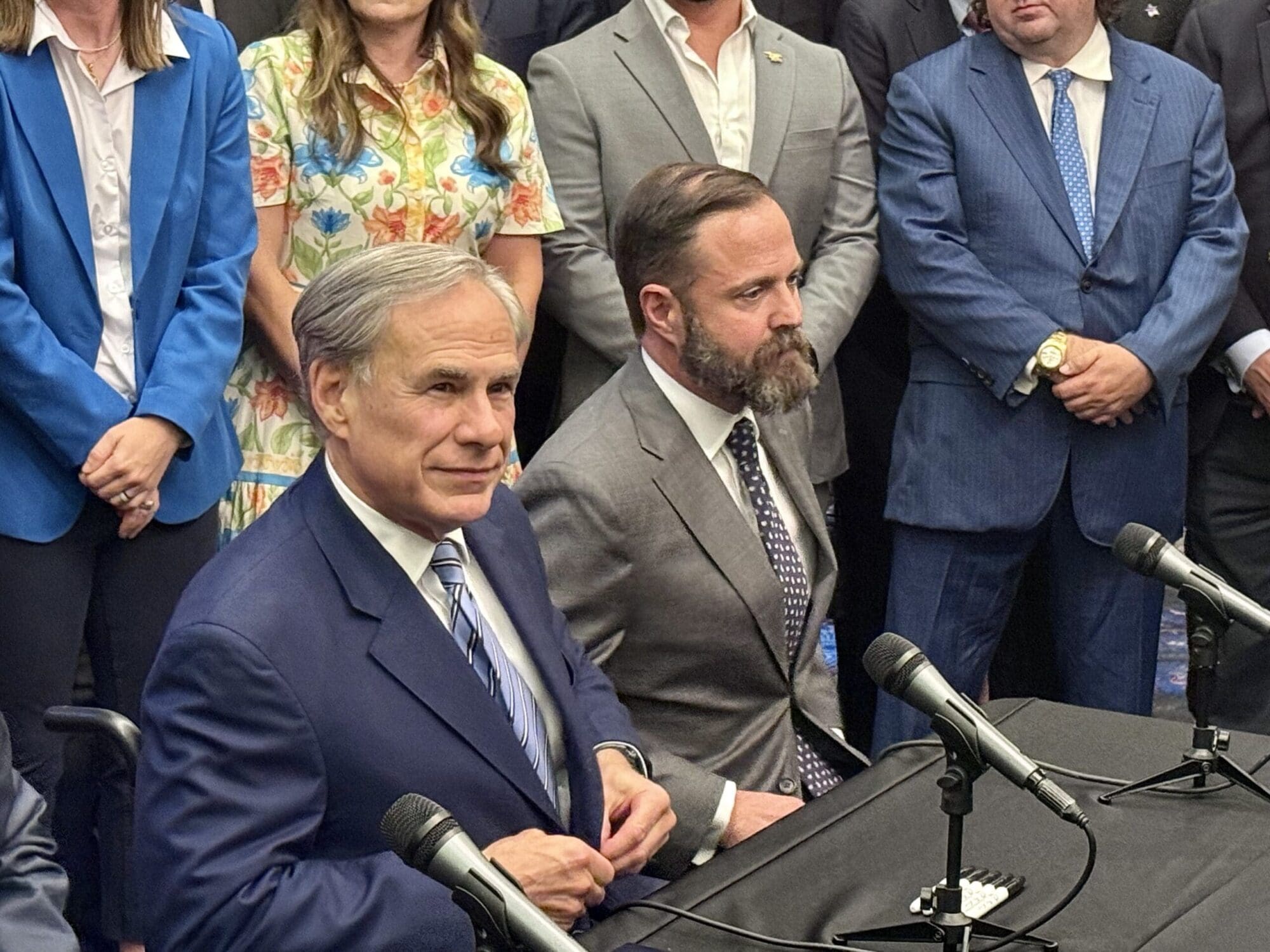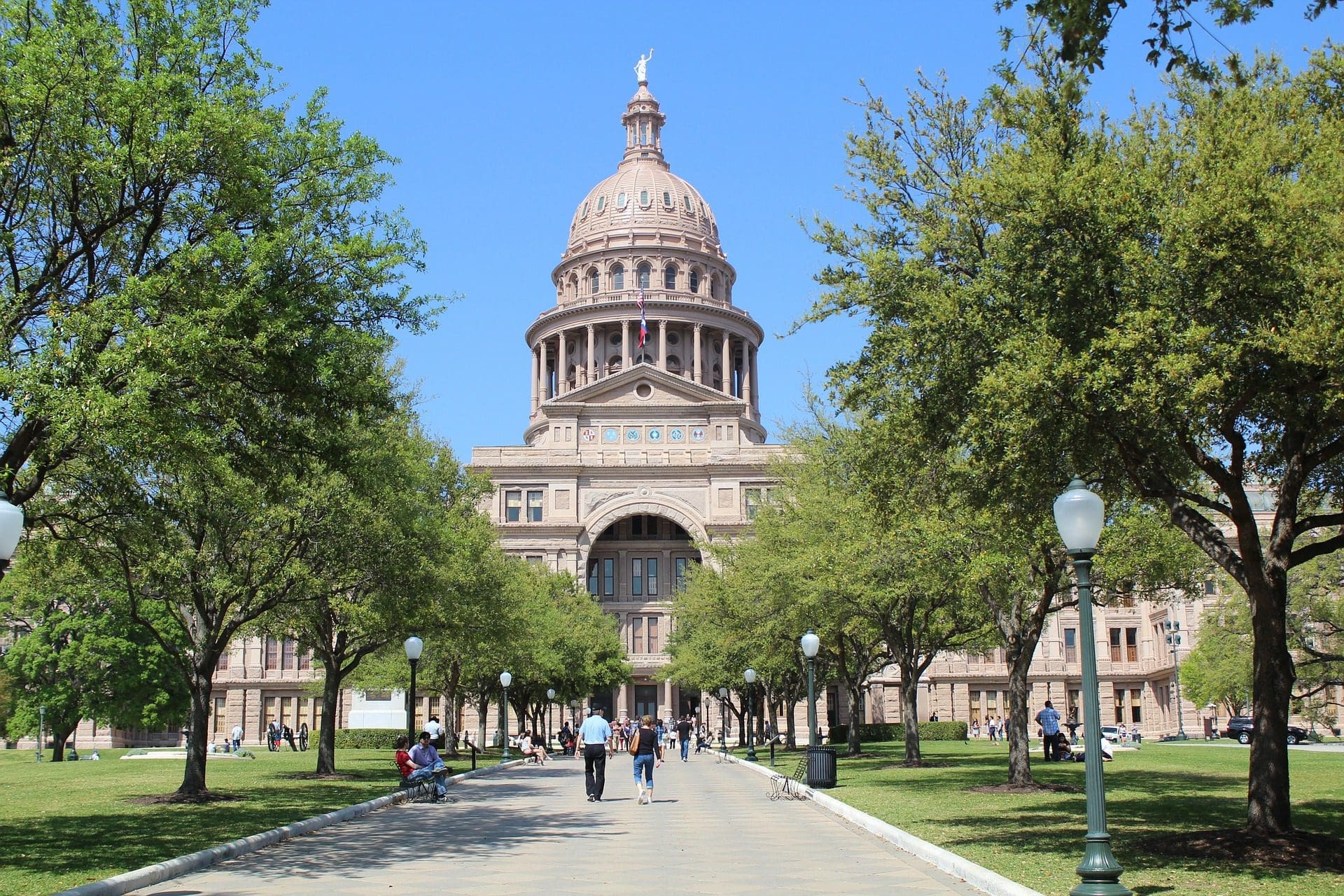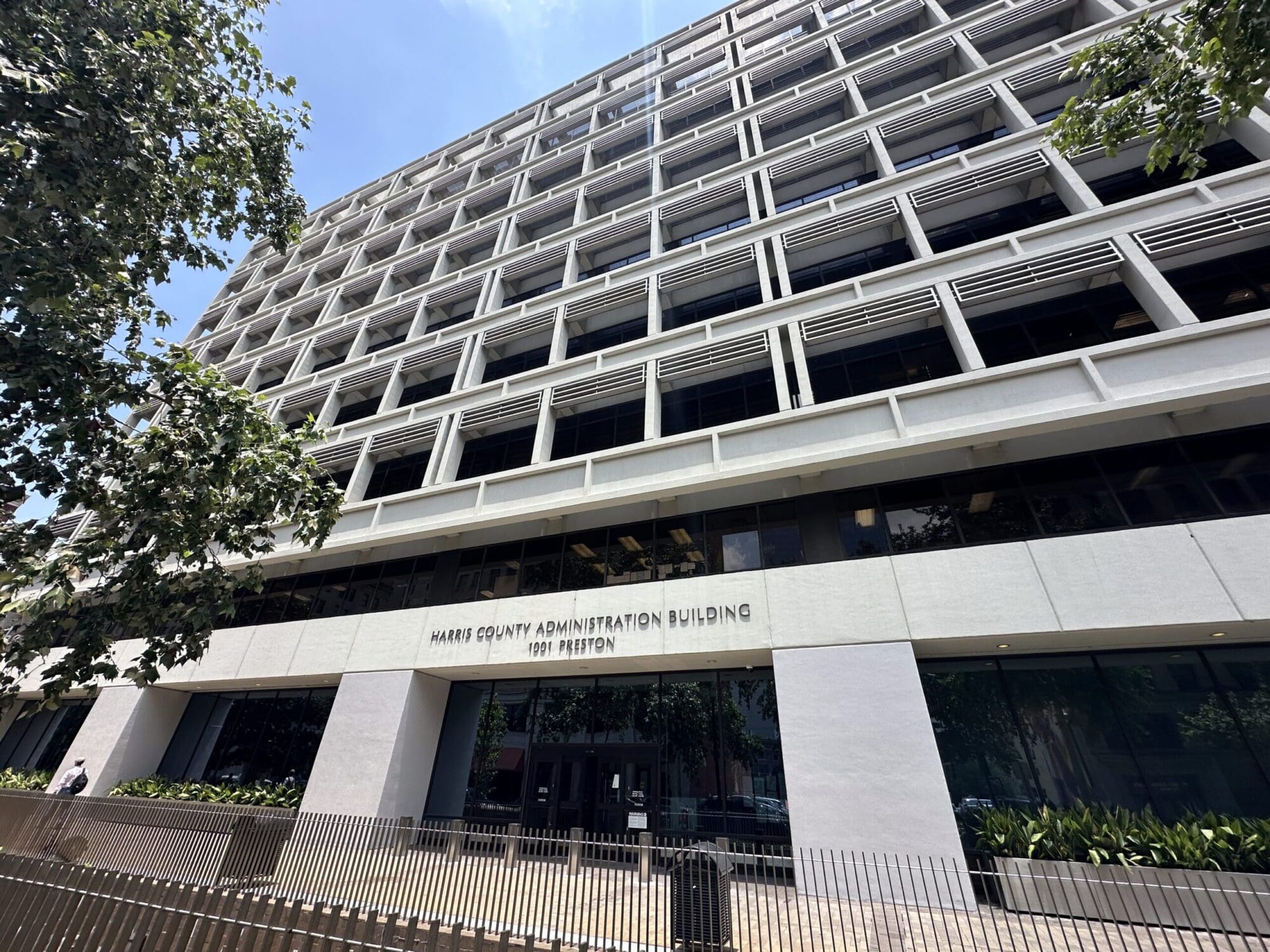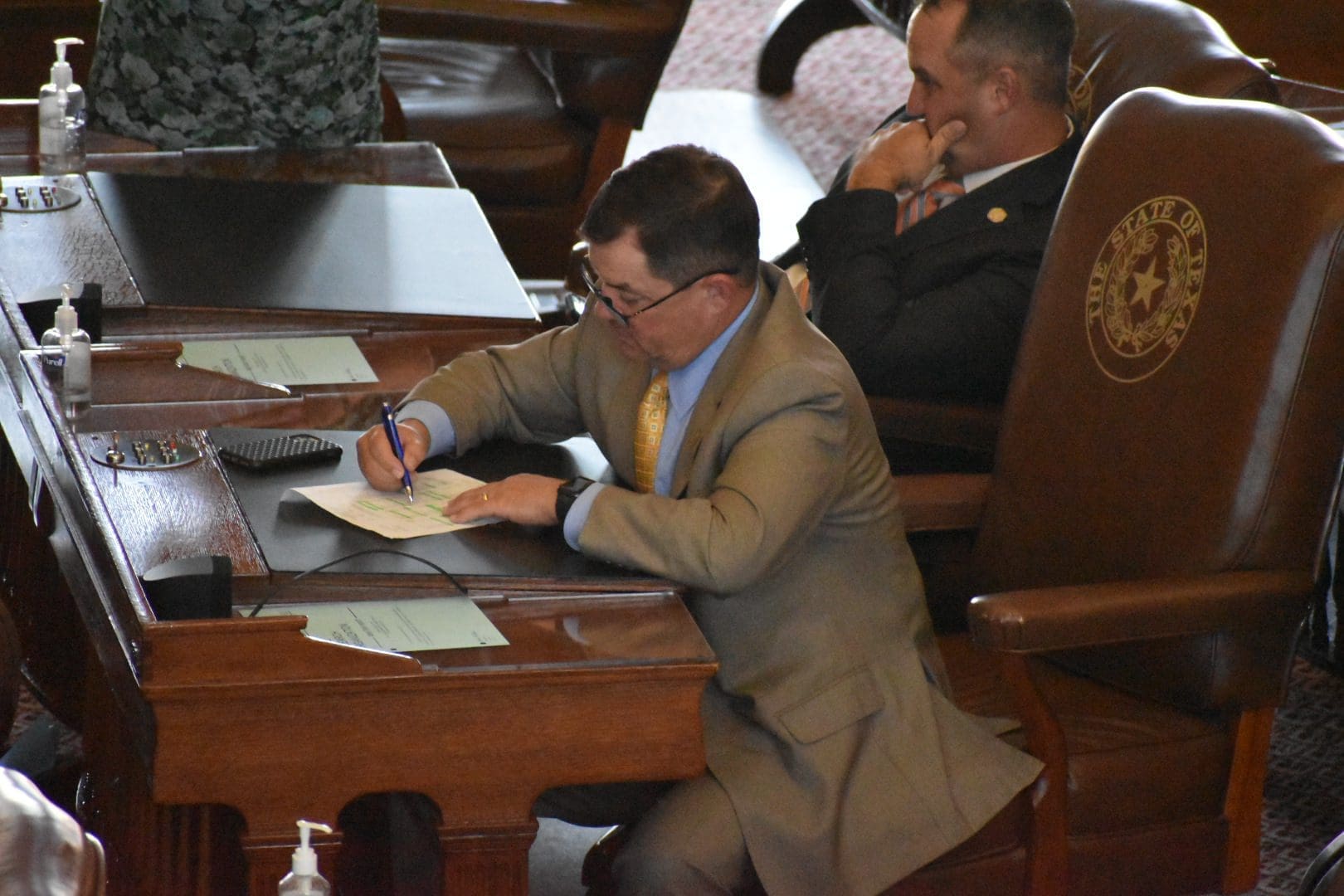In the rapidly approaching Senate District 30 special election, citizens are already hard at work, vetting each candidate and comparing their campaign rhetoric to their conservative record. It’s an important duty, but it is easier for some candidates than others.
Incumbent State Rep. Drew Springer (R–Muenster) is one of the candidates for whom it is easier. First elected to the Texas House in 2012, Springer has a legislative record spanning eight years, and a quick review of the Fiscal Responsibility Index should provide the answer to most questions concerning his time in the Texas Legislature.
However, the Index is only capable of measuring lawmakers’ votes; it isn’t really equipped for contextualizing them. Accomplishing that task on one of the most contentious issues to go before the Texas Legislature last year is what Texas Scorecard did in our post-session “autopsy reports,” and it’s what we’ll further expand on here.
After receiving questions from would-be constituents in SD 30 on his position on taxpayer-funded lobbying, Springer has stated he has supported ending the practice. But is that what the record shows?
For years, Texas conservatives have been working to ban taxpayer-funded lobbying—an onerous practice whereby bureaucrats hijack public resources to fight against the interests of taxpayers. Reform efforts had fallen short in both chambers of the Texas Legislature, but in 2019 the issue had a champion in both the Texas House and the Texas Senate.
State Rep. Mayes Middleton (R–Wallisville) and State Sen. Bob Hall (R–Edgewood) filed House Bill 281 and Senate Bill 29, respectively. The bills were nearly identical and would have banned taxpayer-funded lobbying by preventing governments from hiring individuals who would meet the state’s definition of a lobbyist.
Middleton’s legislation was referred to the House Committee on State Affairs, of which Drew Springer is a member. Though it was tweaked by the committee, the bill was left largely intact. However, the committee did not vote it out until the end of March and did not file their report until the following week—putting it in the hands of the House Calendars Committee late enough that they could kill the bill without a vote.
And that’s exactly what happened. A review of the Texas Legislature’s website shows the last action item on HB 281 to be its consideration in a mid-April meeting of the Calendars Committee. It was never passed out and voted on by the House.
However, Hall’s legislation, SB 29, was still alive. It was passed by the Texas Senate with the support of all but one Republican lawmaker (State Sen. Kel Seliger of Amarillo) and made its way to the Texas House.
Middleton picked up the bill and sponsored it through the House, and Springer joined on as a cosponsor. But did Springer earnestly support the legislation? Our post-session autopsy report on the legislation can tell the rest of the story:
“But when the bill was sent to the House, lawmakers began the process of gutting the bill irreparably and in spectacular fashion. The committee substitute, drafted by State Rep. Drew Springer (R–Muenster), reduced the scope of the bill to something limiting the number of topics a registered lobbyist, paid by a taxing entity, could lobby the legislature on, leaving the floor open for taxing entities to continue the egregious practice.
“Then Middleton, who sponsored the legislation when it came over to the Texas House, offered an amendment to weaken the legislation even further by removing the prohibition on hiring lobbyists for schools at the behest of House leadership.
“Additionally, Middleton’s amendment allowed cities and counties to pay dues to chambers of commerce that engage in lobbying as well as clarified that employees of cities and counties could be paid to come to Austin to testify on legislation and be reimbursed for expenses.
“Before the amendment was adopted, however, State Rep. Trent Ashby (R–Lufkin) argued for lawmakers to limit the scope of the bill even further by exempting counties with a population of fewer than 250,000, leaving only around 20 of the state’s 254 counties subject to the provisions of the bill.
“According to Ashby, ‘rural’ communities like Midland and Waco needed to be free from the restrictions in the bill.
“Though Middleton objected to Ashby’s amendment, Democrats and a group of Republicans teamed up to pass it 90-54, taking a firehose to the already watered-down bill.
“Middleton then attempted to withdraw his amendment, now tainted even further with Ashby’s population exemption, but was informed by House Speaker Dennis Bonnen that he would not be allowed to make that motion.
“Middleton then took the extraordinary action of urging members to vote against his own amendment, but to no avail; it was approved 81-59.
“With a gutted bill that now failed to accomplish its objectives, lawmakers in the Texas House made one final move to assure the measure was killed for the session, officially voting it down 58-85.”
To recap specifically as it relates to Springer:
After watering SB 29 out via the complete substitute, Springer supported efforts to remove public schools, community colleges, and other entities from the legislation. Then he broke from the majority of his own party and voted in favor of the Democrat-Ashby amendment to exempt the vast majority of Texas counties out of the bill by population—a move that would have prevented the hollowed-out ban on taxpayer-funded lobbying from applying to the entirety of his current Texas House District and 12 of SD 30’s 14 counties.
Only after the legislation was successfully gutted did he vote for the bill to pass.
Springer may have voted for the husk of a bill on final passage, but a review of the tape shows him to be one of its most active saboteurs. Drew Springer worked to water down a ban on taxpayer funded lobbying, ensuring his own constituents wouldn’t benefit from it.
Voters in Senate District 30 are encouraged to research the record and rhetoric of all candidates running on the issues important to them. Early voting begins on September 14, with Election Day on September 29.





